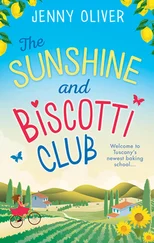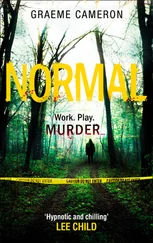Rachel nodded, desperate to ask her why she didn’t talk to her daughter any longer and—if the way she’d adopted Rachel was anything to go by—wishing that her daughter knew how much Chantal clearly missed her.
Chantal was waiting the next night as well, when Rachel came home with strawberry tarts overfilled with crème pâtisserie so the strawberries wobbled precariously on top and most had slid off into the box.
‘Not very pretty.’ Chantal laughed. ‘But très bon ,’ she said, licking her fingers and depositing a clock, a stripy rug that had begun to unravel and a red and white spotty biscuit tin.
With the tea and cake over she clapped her hands together and beckoned to Rachel. ‘Now you come downstairs with me.’
Rachel looked outside; it had started to snow, light flakes frosting up the window. Chantal was wrapping up in her layers.
‘Come,’ she said again, more forcefully.
Rachel made a face behind her back, as if she really didn’t want to, but pulled on her coat and boots and tramped down the stairs after her thinking about how tired she was and how many steps she’d have to trudge back up again.
Outside Chantal beckoned her into the alley alongside the front door.
‘Really?’ Rachel questioned, thinking this might be some crazy human-trafficking ploy. How well did she actually know Chantal?
When Rachel peered round the corner, Chantal lifted a hand to point and said, ‘Et ici!’
Rachel looked at where she was indicating and there, tied to a lamppost with a chain and padlock, was a rusted old fold-up bike. Chantal slipped her the key.
‘It was my daughter’s. She didn’t want it. She was going to leave it in the road. It has been in la cave at my house.’
The bike was turquoise, scratched and rusted with Mirabelle written down the side in white bubble writing and a white wicker pannier on the front.
‘For your cakes.’ Chantal laughed, pointing at the wicker basket on the front, which she had strung with silver tinsel.
‘I don’t know what to say.’ Rachel ran her hand over the handlebars.
‘You say nothing.’
‘I’m so touched.’
‘Ah, you are sweet.’ Chantal patted her on the arm and walked over to her 2CV. ‘Joyeux Noël.’
‘Chantal …’ Rachel called as she watched her heaving open the battered door.
The housekeeper turned, her hat pulled low almost covering her eyes, white curls just poking out around her ears. ‘Oui?’
Rachel wasn’t quite sure what she wanted to say, so just asked, ‘Are you sure your daughter won’t mind?’
Chantal shrugged. ‘She did not take it with her. I think she would like someone to have it.’
Rachel nodded. ‘Will you thank her from me, you know, if you talk to her this Christmas?’
‘We will not talk,’ Chantal said, attempting matter of fact but the sharp intake of breath at the end of the statement gave her emotion away. Then she got in the shabby old car and drove away while Rachel stood where she was, one hand still clutching the handlebars, and waved, wanting nothing more than Chantal to talk to her daughter so she wouldn’t have to see her look so sad again.
The following day, Rachel cycled to the pâtisserie, the tiny specks of blizzarding snow hitting her cheeks, making her feel alive and excited as she pedalled as fast as she could. Who’d have thought she’d be cycling the streets of Paris like a local?
Locking up her bike, she saw her man from the pâtisserie, Philippe, drive past and she put her head down, unsure why, but the thought of talking to him, of the look in his eyes when he spoke to her—of confident amusement—made her fumble her lock and then drop it in the snow by mistake.
But as she walked round to the front of the shop she saw he was just coming down the street, striding along in a dark cashmere suit, his long grey overcoat unbuttoned, and it was too late to pretend she hadn’t seen him.
‘Bonjour.’ He smiled, waving from a couple of metres away. Like hers, his scarf was up over his chin to avoid the pelting snow and when he got close he had to wipe the moisture from his face. ‘It is good weather, non?’
‘Hi. Yes. Bonjour .’ Rachel nodded, immediately flustered, immediately wanting to check her hair in the pâtisserie window. ‘Look, you know, I’m sorry about the other day. With Chef. It was very embarrassing.’
‘It’s not a problem. I know what he’s like.’ Philippe shrugged. He was much taller than her, which she wasn’t used to, Ben being about five foot seven, and she had to glance up when he spoke. Brushing the snow off the front of his coat, he went on, ‘Henri’s my brother. We have worked in the same building for a very long time.’
‘Your brother? Wow.’
Stepping forward, Philippe opened the door for her. ‘I’m not sure wow is quite right, but, yes, he’s my brother. He is less … let’s just say his bark is worse than his bite.’
‘I don’t know about that.’
‘You take my word for it. He er …’ He paused, changed tack. ‘He is consumed by it, by the baking. And I think it makes him—’ he blew out a breath ‘—frustrated when it doesn’t all go his way. As he would like. He doesn’t understand that not everyone is like him. Their brains are different. Oui ?’
‘If you say so.’ Rachel raised a brow in disbelief, at the same time as trying to get a peek at the state of her hair in the reflection of the glass in the door.
‘Life has never worked out quite how it should for him. He’s OK. I promise.’
‘OK.’ She looked at him dubiously. ‘I’ll take your word for it.’
As he gestured for her to go inside she hovered by the open door, pointing for him to go first instead, trying to be polite, but he stood firm, hand out to encourage her to go in. She hesitated and then they were suddenly both going through the door together, bashing into each other so their shoulders hit and they concertinaed in like an accordion.
Philippe laughed. She could feel the deep rumble where their bodies touched.
‘I’m so sorry,’ Rachel muttered.
‘It was my fault. Not like a gentleman.’ He laughed again and she watched his eyes crinkle up at the corners. And noticed how his hair, neatly combed to one side, had flopped a little out of place. When he smiled his teeth were perfect and his long aquiline nose with its bump on the bridge seemed suddenly to give him an air of distinction. She hadn’t thought of him as good-looking—not in the conventional way like Marcel or Ben—but now, as he smiled in the doorway she realised he was handsome. Like a nineteen-forties movie star.
And she also realised that she’d been staring.
‘OK, then. Good. Lovely. Au revoir. ’
‘Hang on a minute,’ she said suddenly as he started to walk away, a realisation dawning on her. ‘If Henri is your brother, that makes you the other Salernes … You and him, you had the restaurant together. Oui? ’ She smiled at herself, as if she were a regular Columbo, but her expression wasn’t reciprocated.
‘Oui,’ he said with a casual shrug but wasn’t forthcoming with anything more.
‘You’re a chef,’ Rachel went on. ‘You’re an amazing chef.’ From what she’d Googled, the Salernes brothers had taken the culinary world by storm, and it certainly wasn’t all Henri. While he was infamous for inventing mouth-watering desserts that challenged the very physics of pastry, his brother, this man standing in front of her, was responsible for some of the dishes that changed the way people cooked. He brought a simple, affordable casualness to the Michelin-starred nouvelle cuisine that was dominating restaurant fare. He learnt from the masters and then twisted the rules in his own unique way creating a culinary revolution.
Читать дальше












